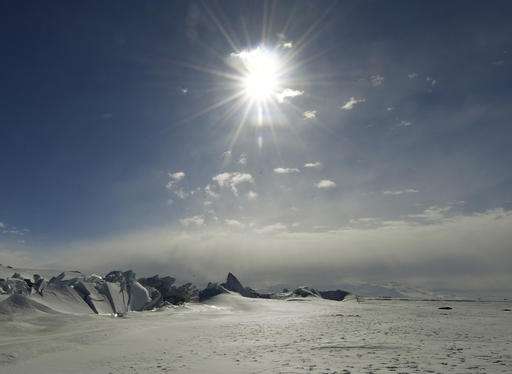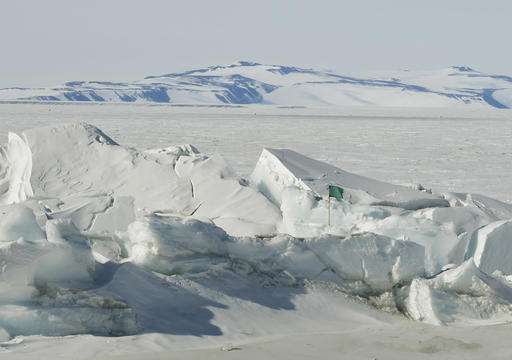AP Analysis: How well will Antarctic marine reserve work?

Last month 24 nations and the European Union agreed to create the world's largest marine reserve near Antarctica. The reserve in the Ross Sea is about twice the size of Texas, although will account for only a tiny fraction of the world's total ocean area. Studies indicate other marine reserves have had mixed results in protecting fish, although the Antarctic reserve has several factors in its favor.
LARGE AND ISOLATED
The Antarctic reserve appears to have four out of five features identified as important for success. The authors of a 2014 study in "Nature" magazine examined 87 marine protected areas around the world. They found some reserves were ineffective, while others worked well. Those that did best were: isolated, large, well-enforced and more than 10 years old. The reserves also banned all fishing.
The Antarctic reserve is certainly isolated and large, and is likely to be well-enforced. Commercial fishing will be banned entirely from about 72 percent of the reserve. The only criteria lacking is that the reserve is not old—it will take effect from Dec. 2017. One potential downside, however, is that countries that aren't part of the group which created the reserve may not necessarily feel bound to respect it.
MORE FISH
The Nature study found there were no significant differences in fish numbers in the reserves that had just one or two of the five features. But there were significant differences as the number of features rose. The study found those reserves that had all five features had 244 percent more fish, 840 percent more large fish, and nearly 2,000 percent more sharks than equivalent areas with commercial fishing.
Callum Roberts, a professor of marine conservation at the University of York in England, said that the reserve should be effective because it has a group of countries that are committed to protecting it and it's located in a part of the ocean that's particularly rich in marine life, boasting thriving colonies of whales, penguins and seals, as well as the lucrative Antarctic toothfish that are prized by fishing companies.
Compared to other areas, Antarctica is not intensively fished. Advocates of the reserve want to keep it that way.

GLOBAL PICTURE
While the reserve may work to preserve fish and other creatures within its boundaries, providing broader protection to the world's oceans would require a lot more work. The reserve represents less than one-half of 1 percent of the world's ocean. Roberts and others estimate that at least 30 percent of the ocean needs to be placed under protection for fish numbers and the environment to rebound from human interference.
"People's first reaction is that 30 percent sounds like a lot, that you'll never get it, that you must be mad," Roberts said. "But we are all pretty mad to have thought that we could sustain nature and the processes on the planet on anything less than that."
PRECEDENT SETTING
Proponents say the Ross Sea reserve sets two important precedents.
It's a breakthrough in getting the Antarctic nations to agree on any reserve after years of failed efforts and past resistance from Russia, in particular. Andrea Kavanagh, who directs Antarctic and Southern Ocean work for The Pew Charitable Trusts, said she's confident the countries will now approve more reserves in Antarctic waters, including in the Weddell Sea and East Antarctica.
Kavanagh says it's also the first time a group of countries have got together to protect such a large swath of ocean on the high seas.
The high seas represent more than half of the world's ocean by area but enjoy little protection because they fall outside the jurisdiction of any one country. The United Nations is looking at ways to implement more marine reserves on the high seas, a process that may be needed to have a global impact.
© 2016 The Associated Press. All rights reserved.



















